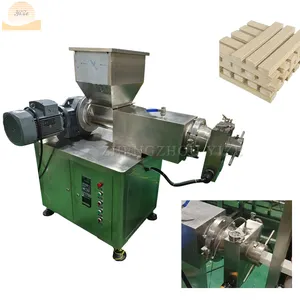Popular in your industry


























































































































































































Top categories
About husk
A husk refers to the external protective layer of seeds and grains. The husk is a vital component of grains, providing protection from external elements and contributing to the overall seed structure. The husk, also known as the hull, is typically composed of cellulose and serves as a barrier that safeguards the seed's internal components, such as the germ and endosperm. Depending on the type of grain or seed, the husk's thickness and composition may vary. For example, the husk of rice is thin and fibrous, while that of barley is tougher and more adherent. Husks can also be found in other natural materials, such as coconut husks, which are widely used in horticulture and crafts. In the agricultural industry, husks are often removed from grains through a process known as husking, which is employed to obtain the edible portions of the seeds.
Types of husks
There are two main types of husks harvested from different sources. The first type is grain husks, which are the protective layers surrounding cereal grains. This includes the husks of rice, barley, and wheat. These grain husks are often utilized in various industries. For example, rice husks are used as a fuel source in some regions, contributing to sustainable energy practices. In brewing, barley husks play a critical role in the mashing process, where they help create a filter bed during the extraction of fermentable sugars. The second type is nut husks, which are the hard, outer coverings of nuts. Common examples include the husks of coconuts and hazelnuts. These nut husks can be repurposed for different applications, such as in gardening, where they are used as mulch or as a component in potting mixes. In the food industry, some nut husks are processed to extract oils or are incorporated into animal feed. The diversity of husk types underscores their widespread presence in the natural world and their value in various sectors.
The significance of husks for agriculture
The husk plays a crucial role in the growth and protection of seeds and grains, directly impacting agricultural practices. The husk acts as a shield, safeguarding the seed from external threats, such as pests, diseases, and environmental stressors. This protective function is particularly essential during the germination phase, where the husk shields the developing embryo from potential harm. Additionally, the husk serves as a barrier against excess moisture, preventing the seed from premature germination or fungal growth. In the context of soil health, husks contribute to organic matter, supporting nutrient cycling and microbial activity. The decomposition of husks enriches the soil, enhancing its fertility and sustainability for future crops. The agricultural value of husks extends beyond their protective role. In livestock feed, certain husks, such as those from grains, provide dietary fiber and nutrients. Furthermore, the utilization of by-products like rice husks as animal bedding showcases a sustainable approach to agricultural waste management. From protecting seeds to promoting soil health and supporting livestock, husks are integral to the agricultural ecosystem.
The use of husks in industrial processes
While husks are traditionally associated with agriculture, they also find diverse applications in industrial processes. The range of husk applications highlights their versatility and potential for resource optimization. In the realm of energy production, certain husks, like rice husks, are utilized as biomass fuel. This sustainable practice not only reduces agricultural waste but also contributes to renewable energy generation. The combustion of rice husks in power plants and boilers exemplifies the integration of agricultural by-products into the energy sector. In the construction industry, the incorporation of materials like coconut husks in composites enhances their strength and sustainability. These bio-composites, known for their lightweight and eco-friendly properties, are utilized in various structural applications. Additionally, the diverse manufacturing sector leverages husks for their insulating and absorbent qualities. The utilization of husk-derived materials in packaging and insulation showcases a growing trend towards eco-conscious industrial practices. The integration of husks in these industrial processes underscores their value as sustainable resources that contribute to innovation and environmental stewardship.








































